No one enjoys hearing negative comments about their body—it’s a topic that is very personal and sensitive. But when it happens in a romantic relationship, such comments can be especially painful. What do you mean the person who is supposed to support and respect you is shaming your body when you thought you could be your true self around them?
Unfortunately, such a thing happened to this woman, whose boyfriend broke up with her because of her ‘shape’ and cheese-eating habits. Hurt about the whole situation, she turned online to ask if taking revenge and letting him know what he lost would be worth it.
No partner should make one feel worse about themselves

Image credits: FabrikaPhoto / envato (not the actual photo)
Unfortunately for this woman, her BF admitted not being attracted to her ‘shape’ and even broke off things because of it



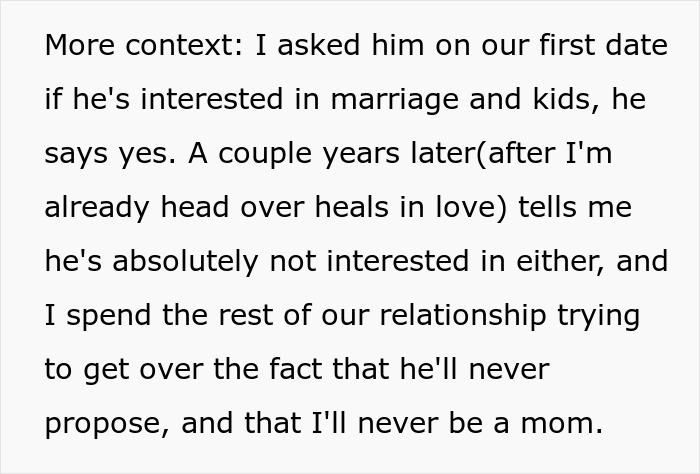


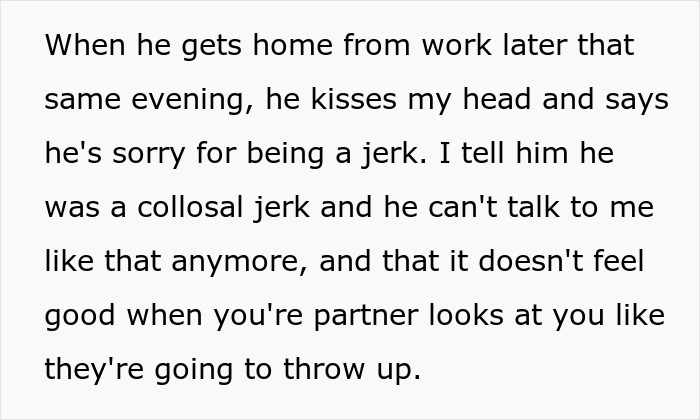



Image credits: dvatri / envato (not the actual photo)

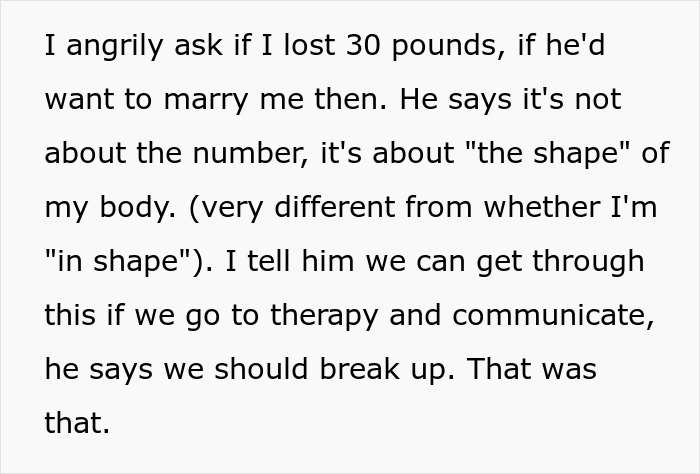


Image credits: Singerbeth
Body shaming is considered a form of emotional abuse
Not only is hearing negative comments about our bodies from significant others heartbreaking, but it is also considered a form of emotional abuse, experts say. One way that abusive partners gain power and control over their other half is by making them feel worse about themselves. They use body shaming to make their significant other feel more self-conscious, so they’re less likely to speak up and draw boundaries for themselves.
Any type of behavior that is intended to cause hurt, shame, or emotional discomfort to another person is a form of emotional abuse. It can start in small, gradual ways, which could be difficult to spot in a relationship at first. Body shaming, in particular, can happen through many behaviors.
“Any sort of criticism, degradation, embarrassment, bullying, teasing, comments rooted in comparison, control, and unrealistic expectations are all body shaming,” said Dani Bryant, a clinical mental health counselor and body liberationist. “It’s a denial of a whole person’s unique self, individuality, body diversity, and boundaries.”
Negative comments from a partner can creep into self-talk, contributing to poor body image and mental health, sometimes without even realizing it. Other body shaming effects may include distorted body image, psychological and emotional distress, isolation, and even mental health and eating disorders—all having the potential to lead to dangerous health outcomes.
Boundaries have to be set around comments that enter body-shaming territory

Image credits: seventyfourimages / envato (not the actual photo)
Partners may have learned body-shaming behaviors from their caregivers/environment or are releasing their own internalized shame about their body, but this doesn’t make their actions excusable. “It’s an opinion of someone else who has their own toxic shame that is often projected on others for power and control,” Bryant said.
If a person finds that a partner’s comments about their body enter the body-shaming territory, boundaries have to be set, even though it might be difficult.
“Express your feelings, communicate your needs, and tell them to stop. Decide what you’re willing to do to take care of yourself if your partner continues to violate your boundaries,” Samantha DeCaro, Psy.D., the director of clinical outreach and education at an eating disorder treatment facility, said.
“If [your] partner cannot or will not do the work to try to understand where their own anti-fat biases or unrealistic beauty standards come from, then it’s really important for folks to ask the question: How can I maintain any sort of growth or healing in body liberation if one of the closest people in my life is not doing that same work?” she added.
Unfortunately, this is rarely possible, which means that we have to remove ourselves from relationships with people who can’t be kind, considerate, or respectful of others or their boundaries.
It’s important to bring up concerns about a partner’s health in a gentle manner

Image credits: Getty Images / unsplash (not the actual photo)
If a person is truly concerned about their own health and well-being, trying to talk to them about it doesn’t always fall into the category of body shaming. But before bringing such a sensitive topic into conversation, it’s important to express concern in a gentle and sensitive manner, without making it about their weight or body shape. It may even be a good idea to start with a disclaimer, like, ‘This is going to be a difficult topic, but I’m not trying to hurt your feelings,’ and avoid making comparisons or offering unsolicited advice.
After the discussion, be prepared for a negative reaction, as no matter how gentle or supportive you thought your delivery was, there’s still a big chance that feelings will be hurt. Once you’ve shared your concerns, it’s not necessary or helpful to continue bringing the topic up. Instead, keep on fostering a positive relationship and focusing on healthy behaviors and self-care, rather than criticizing yourself or your partner.
Netizens encouraged the woman to forget the revenge and move on


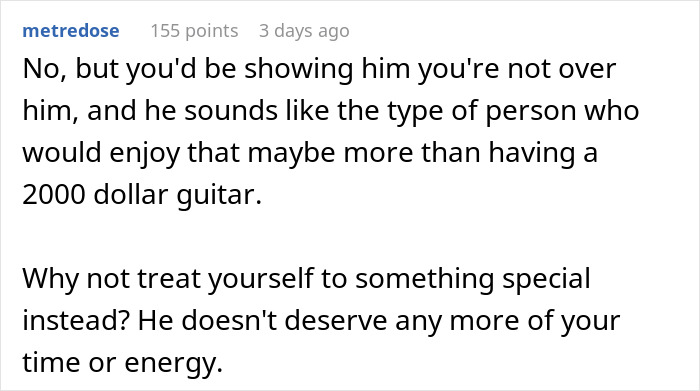







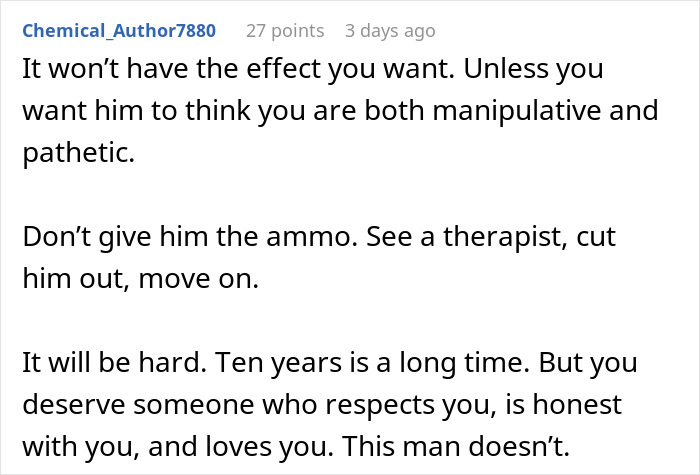



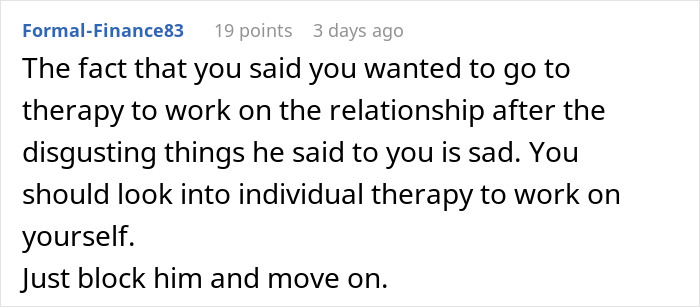






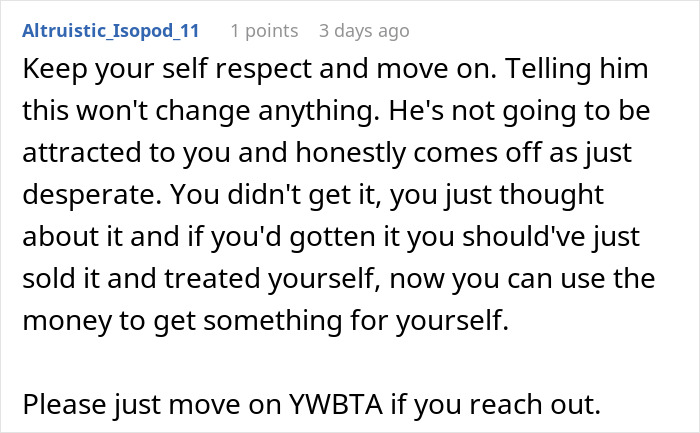


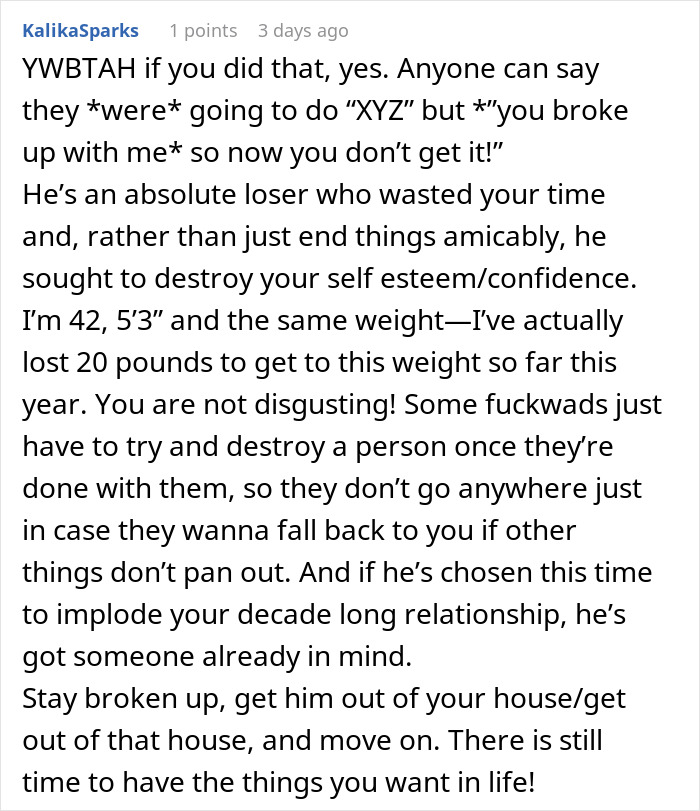
Later, the woman shared a brief update


 Follow Us
Follow Us





